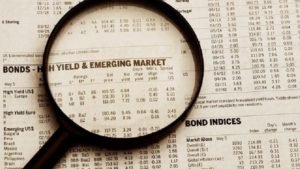He said that in the short term, increased pay outs and special dividends are clearly positive for income investors, but within two or three years this yield could come at the expense of growth as companies lack the capital for innovation.
"On the very strong cash positions we are seeing with companies at the moment, I love it for the short term because we are going to see that money through dividend pay outs and share buy backs. But if companies are not investing more in capital expenditure or M&A and there is an extended period of slow economic growth then how are they going to grow?"
Porter, who has run the Martin Currie Global Equity Income Fund since inception in November 2010, said he thinks dividends will surprise to the upside in 2012.
But he questioned where earnings and cash flow growth would come from in three or four years’ time if companies refused to spend their capital.
Despite being an income manager, Porter also looks for growth potential in stocks and since the end of last year has repositioned his portfolio from a negative cyclical weighting to a neutral one and from a positive "slow growth stock" weighting to a negative one.
Slow growth stocks are defined in his portfolio construction process to be those in the MSCI World High Dividend Yield Index (his benchmark), with a three-year dividend growth forecast of less than 3%. These companies are often high-yielding.
Meanwhile, medium growth stocks have a three-year forecast dividend growth of 3% to 7% and fast growth stocks have forecast dividend growth higher than 7% over three years.
Conviction holdings
Porter’s higher conviction at the moment is with medium growth stocks, which he has almost 39% of his portfolio in, compared to 23.6% of the index, an active weighting of 15.3%.
As at 1 March he had only 3.8% in slow growth stocks, compared to 19.7% from the index, an active weighting of -15.9%.
The fund is benchmark unconstrained and sits in the newly established IMA Global Equity Income Fund. It passed the £50m mark in assets under management in January.
While it has a global remit, more than 75% of the fund is in developed economies, which Porter said is due to issues he has with governance in emerging economies.
"I feel much more comfortable playing them [EM] through UK- or US-listed stocks."
Porter’s fund returned 5.2% in the year to 29 February, compared to a sector average of 3.7% and index returns of 6.1%. This puts it in the second quartile over that timeframe.







